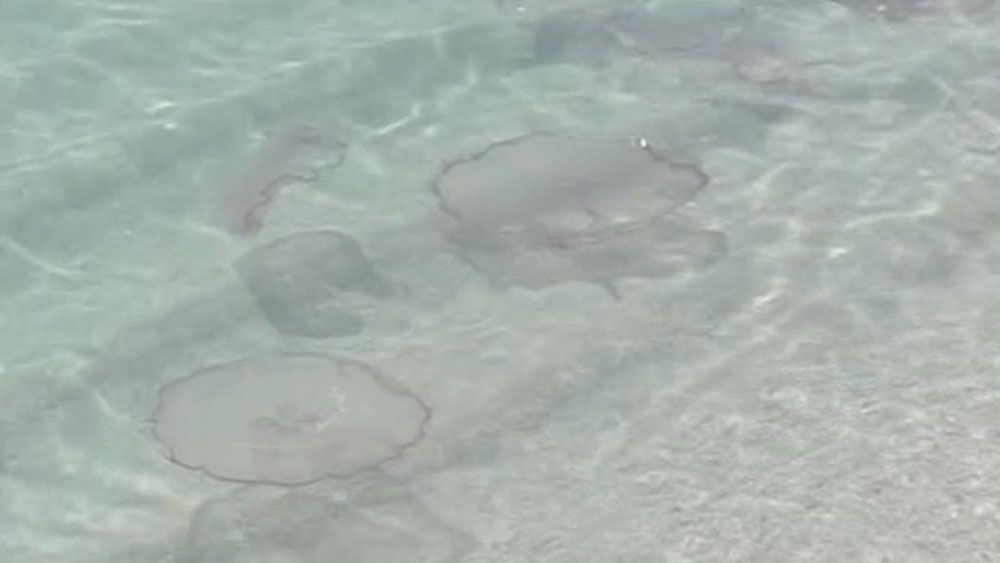DAYTONA BEACH, Fla. -- When you go to the beach, it's not uncommon to see jellyfish.
But, after 3,000 stings in the last two weeks, lifeguards throughout Volusia County are flying a purple flag, warning beachgoers of the risk.
- Over 3,000 jellyfish stings treated in 11 days
- Volusia Beach Safety: wind direction, tide bringing them close to shore
- Flat surf should stick around through the weekend
"You don't expect it. And when something happens, you don't know what it is," said Ray Manchester with Volusia County Beach Safety. "These are big numbers for us."
This Wednesday alone, Beach Safety personnel treated 199 jellyfish stings.
Manchester said that at first, clear Moon jellyfish -- like those found behind the glass tanks at SeaWorld -- blanketed the water, from Daytona Beach to New Smyrna.
More recently, sea butterflies are getting in bathing suits and irritating skin.
"It looks like a little piece of fiber glass, you can see them washing up on shore. They're invisible to the naked eye," he said.
That's because at the moment, the ocean is more like a lake, Manchester said.
"Jellyfish are subject to currents and winds, and there's not a lot of that right now. They're here and have had nothing to kind of push 'em along," he said.
According to Spectrum News 13 Chief Meteorologist Bryan Karrick, the flat surf should stick around through the weekend.
"The way they swim and how they move, it's interesting," said Ryan Randall, a fourth-grader admiring SeaWorld's jellyfish display on Wednesday.
The 9-year-old pointed to the glass, transfixed by the colorful creatures that pulsated before his eyes. He has never seen them at the beach before and isn't eager to run into them either, preferring a little distance.
"You can learn about them, you can see them, but they can’t hurt you with their stingers," he said.
According to Volusia County Beach Safety, lifeguards reported 947 stings in the last two days.
Manchester explained that more than 95 percent of the stings are just minor irritations which can be treated at lifeguard towers with a dose of vinegar.
Trader Joe's donated two pallets of vinegar to Beach Safety to treat the jellyfish stings.
According to Florida Fish and Wildlife Conservation Commission marine biologists, jellyfish which wash ashore should not be handled.
Jellyfish also swim by pulsing their umbrella or bell, and increases in jellyfish are associated with winds, currents and storm activity.
Although feared by swimmers, most of the creatures -- which lack backbones, hearts, brains and blood -- are harmless, they shared.
Volusia County Beach Safety said that the phenomenon seems to be happening in the afternoon, as lifeguards swim drills each morning and no one has been stung yet.
"We might have a couple hundred stings per day, but that's nothing compared to the thousands and thousands of people who go to the beach," said Manchester.



